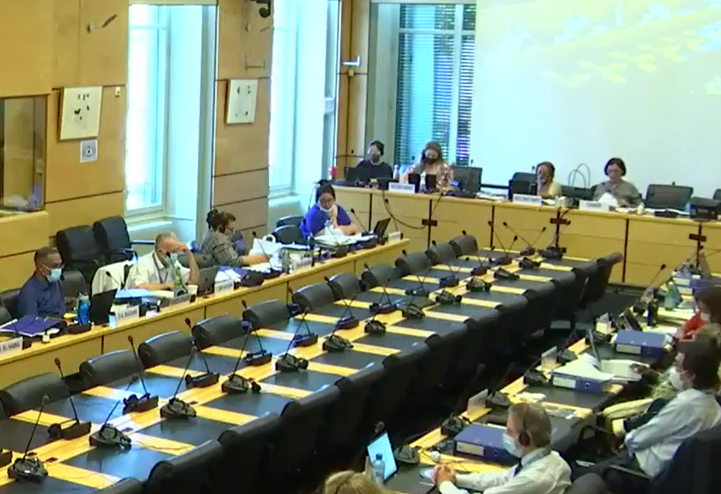On 2 December 2022, the United Nations (UN) Committee on the Elimination of Racial Discrimination (CERD) released its 2022 review of the Kingdom of Bahrain. While the Committee made note of some small number of positive developments in the country, it spent most of its time critiquing Bahrain’s human rights record as regards both de facto and de jure discrimination – including on the subjects of civil society space, human rights defenders, human trafficking and migrant workers, nationality laws, and the rights of the Baharna and Ajam communities. ADHRB agrees with the Committee’s assessment, and calls on Bahrain to immediately implement the recommendations that the CERD made in its most recent report.
Bahrain acceded to the Convention on the Elimination of All forms of Racial Discrimination over 30 years ago, on 27 March 1990. Since then, the Committee in charge of its implementation has reviewed Bahrain five times, each time highlighting that the Kingdom still has a significantly long way to go before it can claim to have implemented the Convention and comply with its international human rights obligations.
“This latest report form CERD only adds to the pile of unfulfilled recommendations concerning Bahrain,” said Husain Abdulla, Executive Director of ADHRB. “How long will it take for Bahrain to acknowledge its problems and actually work to address them?”
On the subject of human rights defenders and civil society organizations, the Committee’s recommendation was extremely critical of Bahrain’s closure of civil society space since its last review. The Committee therefore recommended that Bahrain amend its legislation to decriminalize human rights advocacy-related activities, “with a view to facilitating the work of human rights defenders.” In this, it joins other UN Committees, including the UN Committee against Torture and the UN Committee Human Rights Committee in calling for increased space for human rights defenders and amending laws necessary to allow for a health civil society in the country. The Committee additionally recommended that Bahrain work to further establish its National Institute for Human Rights, which remains inadequately accredited due to insufficient separation from the government.
In broaching the subject of migrant workers and human trafficking, the Committee stated that migrant workers continue to face abuse in the country, and that the kafala system appears to still persist in practice. The Committee was particularly concerned by the lack of protection for female migrant domestic workers, who it stated were not fully protected by the local Labor Code – including from sexual exploitation.
The Committee took a particularly wane view of Bahrain’s nationality laws, first criticizing the country for the manner by which citizenship cannot pass through a woman, then turning to the issue of the disproportionate denaturalization of Baharna and Ajam citizens. In this, its recommendations were extremely targeted, taking aim at the Citizenship Law and firmly calling for it to be brought in line with the Convention on Statelessness and for its provisions regarding women to be amended to allow transmission of citizenship.
As well, the Committee acknowledged the plight of the local Baharna and Ajam populations – two local populations indigenous ethnoreligious populations that have been present in the island nation since well before the arrival of the ruling family. The Committee said that it was concerned by reports of structural discrimination in law against these populations, and urgently called on the Government to examine the issue and allow them to enjoy their rights, in line with the requirements of the Convention.
ADHRB agrees wholeheartedly with the assessment of the CERD, and thanks its experts for raising the issues of racial discrimination in Bahrain and calling attention to these important issues. We additionally call on the Kingdom of Bahrain to immediately take steps to implement all of the CERD’s recommendations, as well as those of the CAT, HRC, and all other recommendations made by the official treaty bodies of the United Nations.





